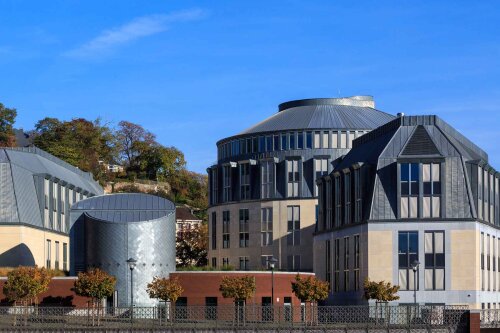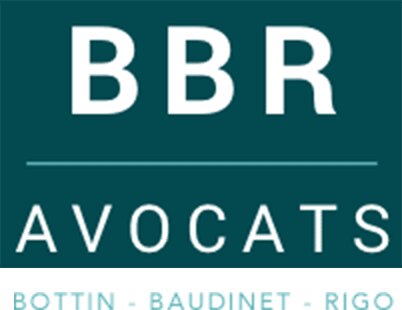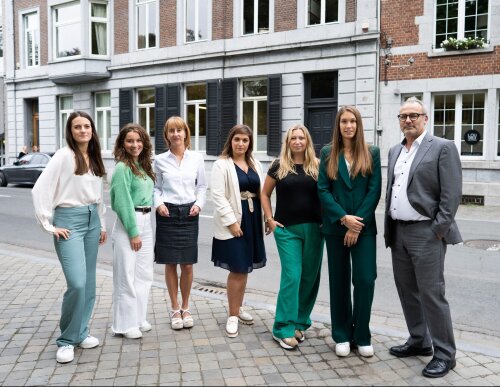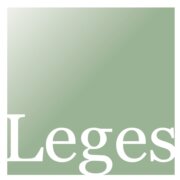Best Collaborative Law Lawyers in Liège
Share your needs with us, get contacted by law firms.
Free. Takes 2 min.
Free Guide to Hiring a Family Lawyer
List of the best lawyers in Liège, Belgium
About Collaborative Law in Liège, Belgium
Collaborative Law is an alternative dispute resolution process that enables parties to settle legal disputes without going to court. In Liège, Belgium, Collaborative Law is particularly popular for family matters such as divorce, child custody, and inheritance disputes, although it can also be used in business or civil conflicts. The process involves both parties and their lawyers agreeing to work together to reach a mutually acceptable solution. All participants commit to honest communication and to avoid litigation, which fosters an open and respectful environment for discussions. The goal is to resolve matters in a way that best serves the interests of all parties, saving time, costs, and emotional distress associated with traditional court proceedings.
Why You May Need a Lawyer
People often seek the help of a lawyer experienced in Collaborative Law for various reasons. Some common situations include:
- Family law matters like divorce, separation, child custody, and parental arrangements
- Resolving disputes about property distribution, alimony, or child support
- Settling inheritance disputes within families without litigation
- Business disagreements between partners or shareholders who wish to preserve professional relationships
- Disputes between neighbors or within small communities that benefit from consensual solutions
Lawyers play a crucial role in guiding their clients through the collaborative process while protecting their legal rights and ensuring all agreements are fair and enforceable.
Local Laws Overview
In Belgium, Collaborative Law is recognized as a voluntary and confidential process for dispute resolution. The Belgian Civil Code provides the framework under which parties can enter into an agreement to resolve disputes out of court. In Liège, professionals specializing in Collaborative Law must have specific training and adhere to ethical guidelines set by the Ordre des Barreaux Francophones et Germanophone de Belgique (OBFG), which governs the legal profession. Key aspects of Collaborative Law locally include:
- All parties sign a participation agreement, committing to transparency and good faith negotiations
- The process remains confidential, and information shared during negotiations cannot be used in court if the collaborative process fails
- If no agreement is reached, collaborative lawyers must withdraw, and the parties need to find new legal representation for court proceedings
- Liège courts may encourage parties to use Collaborative Law before resorting to litigation, especially in family disputes
This process helps maintain relationships and often leads to more durable, satisfactory outcomes for everyone involved.
Frequently Asked Questions
What is Collaborative Law?
Collaborative Law is a voluntary process where parties work with specially trained lawyers to resolve disputes amicably without going to court.
How is Collaborative Law different from mediation?
In Collaborative Law, each party has their own lawyer who actively participates in negotiations. Mediation typically involves a neutral third party helping both sides reach an agreement, but the mediator does not provide legal advice.
What types of disputes are suitable for Collaborative Law in Liège?
Collaborative Law is commonly used for family matters such as divorce, child custody, and inheritance issues, as well as business and civil disputes where ongoing relationships are important.
Is the Collaborative Law process confidential?
Yes, all discussions and documents shared during the collaborative process remain confidential and cannot be used in court if negotiations fail.
What happens if we cannot reach an agreement?
If the parties do not reach an agreement, the collaborative lawyers must withdraw from the case, and each party must hire new representation to proceed in court.
Can Collaborative Law be used in complex financial disputes?
Yes, Collaborative Law can be effective for complex cases, and independent financial advisors or experts can be involved in the process to assist with evaluations and solutions.
Will a collaborative agreement be legally binding?
Yes, once an agreement is reached, lawyers can draft a contract that is legally binding. In family law matters, the agreement may be submitted to the court for approval to make it enforceable.
How long does the Collaborative Law process take?
The duration varies depending on the complexity of the issues and the willingness of all parties to cooperate. It is generally faster than traditional litigation.
Do I still need a lawyer if I choose Collaborative Law?
Yes, each party is represented by their own specially trained Collaborative Law lawyer to ensure their interests are protected throughout the process.
How do I find a Collaborative Law lawyer in Liège?
You can contact the local bar association, search online directories, or seek recommendations from legal aid organizations specializing in dispute resolution.
Additional Resources
If you are considering Collaborative Law in Liège, the following resources can provide assistance and information:
- Ordre des Barreaux Francophones et Germanophone de Belgique (OBFG) for accredited Collaborative Law lawyers
- Liège Bar Association for local referrals
- Family mediation and collaborative practice associations operating in Wallonia and Liège
- Legal aid centers in Liège, such as the Bureau d’Aide Juridique (BAJ), offering consultation or financial assistance for legal services
- Governmental information portals about Belgian civil and family law
These organizations can guide you toward trusted professionals and provide more information about your legal options.
Next Steps
If you are seeking legal guidance or considering Collaborative Law in Liège, it is important to act promptly to protect your rights and interests. Here are some recommended steps:
- Assess whether Collaborative Law is a suitable path for your dispute
- Compile all relevant documents and information about your case
- Contact a qualified Collaborative Law lawyer in Liège for an initial consultation
- Discuss your goals, concerns, and the collaborative process with your lawyer
- Consider involving neutral experts if your case involves technical or financial complexities
- Prepare to commit to open and respectful communication throughout the process
Seeking professional legal advice early can help you understand your options and increase the likelihood of a successful, amicable resolution.
Lawzana helps you find the best lawyers and law firms in Liège through a curated and pre-screened list of qualified legal professionals. Our platform offers rankings and detailed profiles of attorneys and law firms, allowing you to compare based on practice areas, including Collaborative Law, experience, and client feedback.
Each profile includes a description of the firm's areas of practice, client reviews, team members and partners, year of establishment, spoken languages, office locations, contact information, social media presence, and any published articles or resources. Most firms on our platform speak English and are experienced in both local and international legal matters.
Get a quote from top-rated law firms in Liège, Belgium — quickly, securely, and without unnecessary hassle.
Disclaimer:
The information provided on this page is for general informational purposes only and does not constitute legal advice. While we strive to ensure the accuracy and relevance of the content, legal information may change over time, and interpretations of the law can vary. You should always consult with a qualified legal professional for advice specific to your situation.
We disclaim all liability for actions taken or not taken based on the content of this page. If you believe any information is incorrect or outdated, please contact us, and we will review and update it where appropriate.













